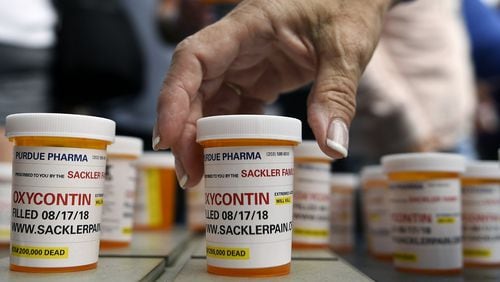Cobb County commissioners voted this week to create a council to advise them on how best to use the nearly $40 million the county will receive from various opioid lawsuit settlements with pharmaceutical manufacturers and distributers.
The Cobb County Opioid Abatement Advisory Council will be made up of local leaders and health experts appointed by various elected officials. The money must be used to abate and remediate the impacts of the opioid crisis.
Some will serve by nature of their position or experience with the opioid crisis locally, including an addiction survivor or a family member of someone facing addiction; a substance use treatment provider; a member of the community service board’s executive team; and a member of the county Board of Health.
The state of Georgia will receive settlement funds totaling $638 million, some of which will be distributed to counties based on the impact the opioid crisis had in each jurisdiction. Of all the Georgia counties, Cobb is set to receive the largest payout from the state at just over $2 million.
Separately, Cobb has approved three other settlements: $19 million with opioid manufacturers and Janssen Pharmaceuticals; $15.2 million with manufacturers Teva and Allergan, along with pharmacies CVS, Walgreens and Walmart; and $3.5 million settlement with Rite Aid.
Other lawsuits are still pending. The funds will be delivered over several years. So far, about $3.5 million has been collected, County spokesman Ross Cavitt said.
Counties eligible to receive funds through the state are required to form a council and meet certain requirements for its members. Smaller counties will join together to form regional councils.
The council is charged with creating a “coordinated and comprehensive approach ... to combat this urgent crisis that afflicts our community,” according to the resolution. It will come up with a comprehensive abatement strategy to determine the best way to utilize the settlement funds, but the final decisions will be made by the Board of Commissioners.
The opioid crisis hit Cobb County particularly hard: the county led the state with the most opioid overdose deaths in 2017 and has been in the top three with Fulton, DeKalb and Gwinnett since then.
In 2022, Cobb had 143 opioid overdose deaths, up from 123 the prior year, according to the Georgia Department of Public Health data.
About the Author







